Algeria as a nation in the Maghreb framework
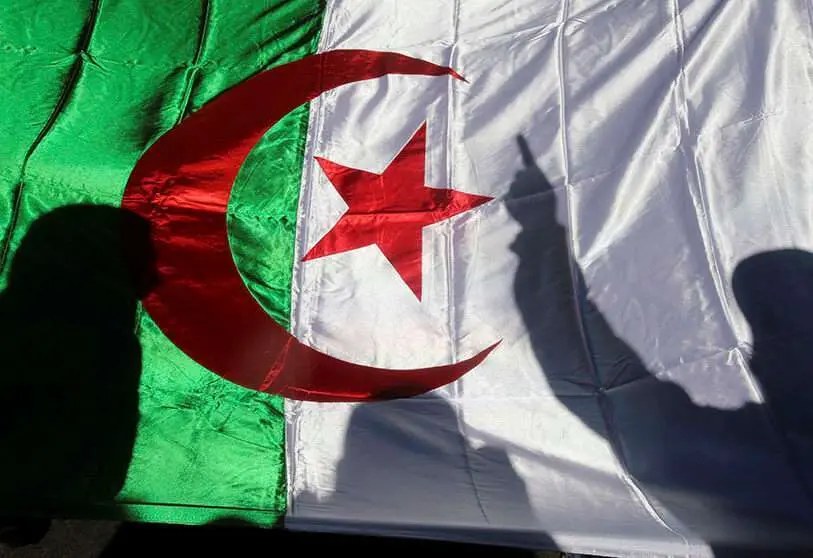
The aspirations of the Algerian people have been betrayed by the military regime.
On 1 November every year, Algeria commemorates the Manifesto by which the Algerian people announced their revolution in 1954 to put an end to the French colonialism imposed since 1830. The 66th anniversary of this proclamation coincides with an internal crisis marked by protests or the "hirak" against the military regime, another that is already chronic with its Moroccan neighbour and another with France, its former coloniser, following statements by the French president, Emmanuel Macron, in which he wondered whether Algeria existed as a nation before French colonialism.

He recalled, according to the daily Le Monde, that before France in Algeria there were precedents of colonisation, alluding to Turkey, exclaiming his fascination with the latter's ability to make people forget all about the role it played in Algeria during the Ottoman Empire.
He said, "I am fascinated to see Turkey's ability to make us totally forget the role it played in Algeria and the domination it exerted".
He also accused the Algerian regime of rewriting an official history that is not based on truth and that the "politico-military system was built on this commemorative rent". These statements provoked the anger of the Algerian rulers, who considered them offensive and untrue. As a result, they recalled their ambassador to Paris for consultations and banned French military aircraft from flying over Algerian territory.
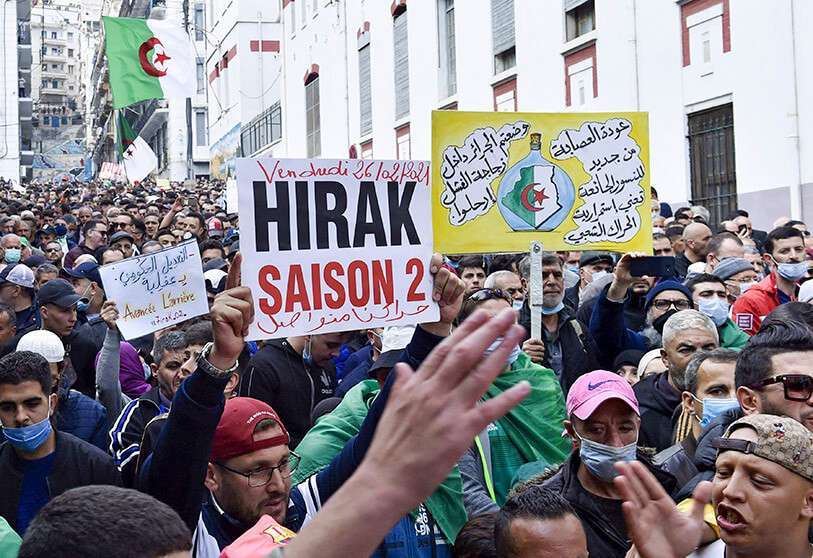
The commemoration of the 66th anniversary of the November 1st Manifesto is an opportunity to address these statements by the French leader, which are certainly not trivial, highlighting what may be wrong and what is probably true.
First and foremost, it should be noted that most Algerians and the rest of the Maghreb consider that Algeria has always been a nation. But a nation within the Maghreb space, ruled by the same tribes that ruled the rest of the Maghreb and that took turns in power with the exception of the Ottoman era, which has its own explanation.
However, the military regime that seized power in 1962, in order to legitimise itself, crafted a history to suit its own interests. So, if it is true, as President Macron rightly says, this "political-military system was built on this commemorative rent". An official history of military and police power full of inconsistencies and major contradictions with serious consequences.
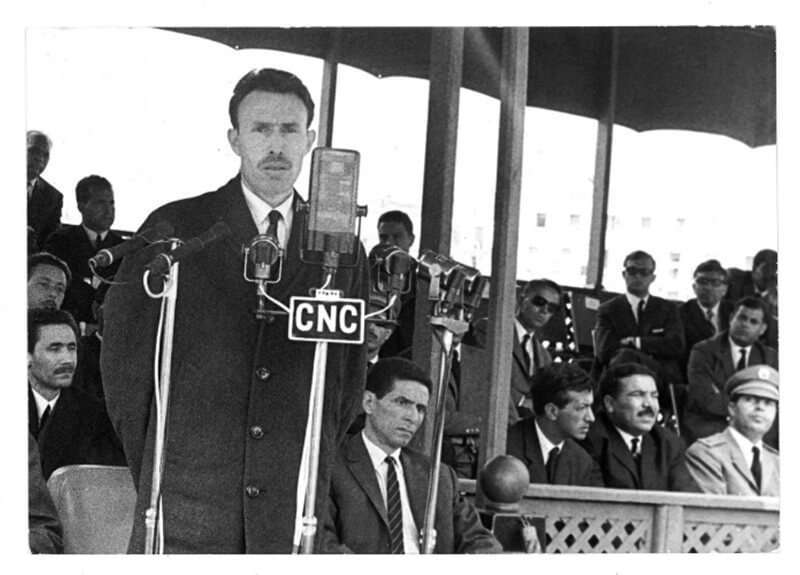
As a preliminary point, it should be noted that the term "nation", which in Arabic is "Umma", has a completely different concept and evolution in Europe than in the Islamic world. Its process culminating in the emergence of a national identity had a different evolution in Europe than in the Islamic world. In Europe it is relatively recent, following the Treaty of Westphalia, where the concept of national sovereignty and the principle of territorial integrity were established as the foundations of states. In the Islamic world, the term "Ummah" is a much older concept dating back to the 7th century and originating in the Koran. Its etymological meaning is "community", especially the "community of believers". It is based on the principle of Dar al-Islam which states "the land of Islam is the land of every Muslim". In this space, the Muslim had the freedom of movement, work and settlement regardless of origin. Also, within the land of Islam, the conquest of a territory by another Islamic power was not considered to be either occupation or colonialism.
In the Maghreb, Morocco was the first to form as a nation, in the sense of a political unit that broke away from the Abbasid caliphate in Baghdad. It was in the 8th century that the Idrisid dynasty was proclaimed and built Fez as its capital, which soon spread to Algeria and the rest of the greater Maghreb. The next dynasty, the Almoravids, founded in the 11th century by the nomadic Berber tribe of Sanhaya from what is now Western Sahara, who founded the city of Marrakesh as their capital in 1062, also spread throughout North Africa, consolidating the unification of the greater Maghreb, and the same happened in the 12th century with the Almohad dynasty, founded by the Berber tribe of Masmuda from the Atlas, who extended their power to Algeria and the rest of the Maghreb.
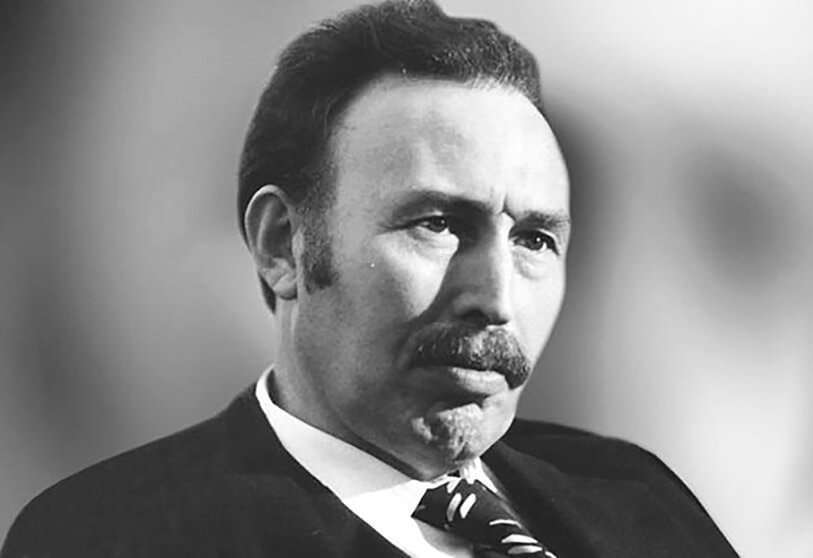
Following the battle of Navas de Tolosa in July 1212, in which the Almohad king Mohammed Annasser lost the battle against a Christian army led by troops of Alfonso VIII of Castile, the process of decadent and dispersive disintegration began in the Greater Maghreb, while the process of incorporation began in the Kingdom of Catilla, culminating in the birth of Catholic Spain. As part of this process of disintegration, the Almohad dynasty disappeared. In the eastern part of the Greater Maghreb, the Hafsids created their independent kingdom that encompassed Tunisia and eastern Algeria with Tunis as its capital. On the other hand, the Zianid tribes established their power in the western part of Algeria with Oran as their capital, leaving what is now Algeria divided in two. In Morocco, meanwhile, the Berber Zenata tribe seized Marrakesh, proclaiming the Meridies dynasty, and soon annexed western Algeria.
This situation did not change until the 16th century, when Spain conquered many places on the North African coast, including Oran and Algiers. The weakened Zianids asked for help from the Ottoman Sultan, who soon expelled the Spaniards. At the same time, however, he annexed these Algerian territories to his empire and appointed an Ottoman regent who reported to the Sublime Porte in Istanbul.
In 1827, following a diplomatic incident between the French consul and the Ottoman ruler in Algiers, Hussein Day, France sent its army to conquer the eyalat, and in 1830 it was able to achieve this goal and Algeria ceased to be an Ottoman province or eyalat and became a French province.
Colonial France, by annexing Algeria as a French province, assuming that it would be in perpetuity, and in that colonialist spirit, incorporated large territories that never belonged to Algeria, including Moroccan territories. It also annexed other territories, especially in the greater Sahara.

When decolonisation was looming on the horizon, some Algerian soldiers from the French army, which was repressing the Algerian people, decided at the last minute to join the Liberation Army. Today, they are the ones who call the shots in Algeria - they constitute the hard core of the current political-military system to which President Macron refers. Most of them did not fight for the liberation of Algeria but joined the Algerian Liberation Army in Morocco and Tunisia as a rear army under the command of Colonel Boumedien.
When Algerian independence was proclaimed, this rear army of nearly 40,000 soldiers, led by the newly arrived French Army officers and the invaluable assistance of Nasser's Egypt and the Soviet Union, invaded Algeria. When they took Algiers, they overthrew the legitimate Provisional Government of the Algerian Republic (GPRA) and installed Ben Bella as president, taking advantage of his image as a historic leader to give the assault on power a façade of legitimacy. Three years later, Colonel Boumedien, a student at Cairo's Azhar University with unfinished studies, overthrew Ben Bella, imprisoning him for years without trial and proclaiming himself president of the People's Democratic Republic of Algeria. .
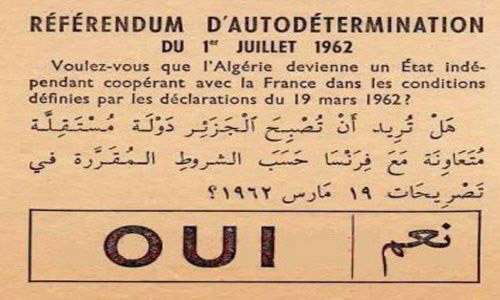
Since then, the aspirations of the Algerian people have been betrayed and their freedom confiscated by the military regime. Since then, the military political system has spared no effort to repress the real fighters by assassination, exile, and imprisonment. At the same time, it proclaimed for itself the legitimacy emanating from the November 1st Manifesto. To do so, he wrote a "history" distorted to suit his own interests. President Macron is therefore right to say that in Algeria the "political-military system was built on this commemorative rent".
The French president is aware of the scope of his words, because he knows that when France decolonised Algeria it tried to transform its colonialism into neo-colonialism in order to safeguard its interests. The aim was for the new rulers to be, as far as possible, the heirs of the colonial administration, which was achieved with excellence; they were magnificent. Magnificent and excellent heirs in terms of politics, administration, mentality and the very repression of the Algerian people. So much so that the system installed in Algeria never conceived Algerian independence as a break with the colonial past. The colonial ways and behaviours continued to be exercised to perfection. There was only the transfer of the territory to new faces, with different names. The essentials remained intact.
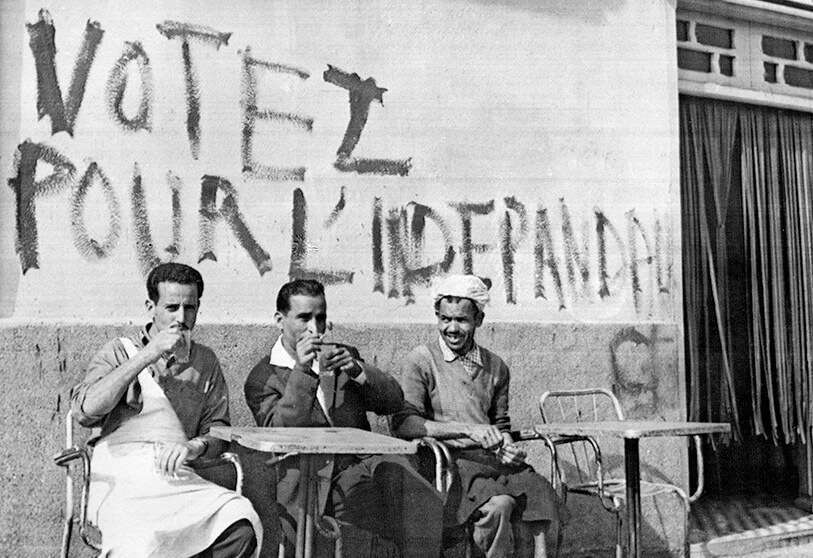
It is worth remembering that when the true fathers of the Algerian revolution drafted the November 1st manifesto, considered a key piece and historical reference, it is striking that they did not envisage Algeria as a nation independent of the rest of the Maghreb, but as an integral and inseparable part of it. It was thus clear that this desire was the result of a profound knowledge of the history of the Maghreb, considering the interconnectedness and similarity of the peoples and families that make up the Maghreb. They also had a forward-looking vision that a prosperous future for Algeria, like the other North African countries, cannot be separate and apart from a united Maghreb.
The first paragraph of the Manifesto states that "the meaning of our action, its foundation and its objective is national independence within the North African framework". In other words, the concept of independence and nationhood are envisaged within the framework of a united Maghreb and not outside it. It is not just a question of independence, full stop. It is about achieving decolonisation by France to allow Algeria and its people to immediately integrate the Maghreb framework and build it up. In this sense, the following sentence of the Manifesto cites Morocco and Tunisia as Maghreb countries that profoundly mark the process of the liberation struggle in North Africa. The Declaration, in another passage, again cites North Africa as a whole, hailing as "the objective of the Algerian revolution the construction of North African unity within the natural Arab-Muslim framework".
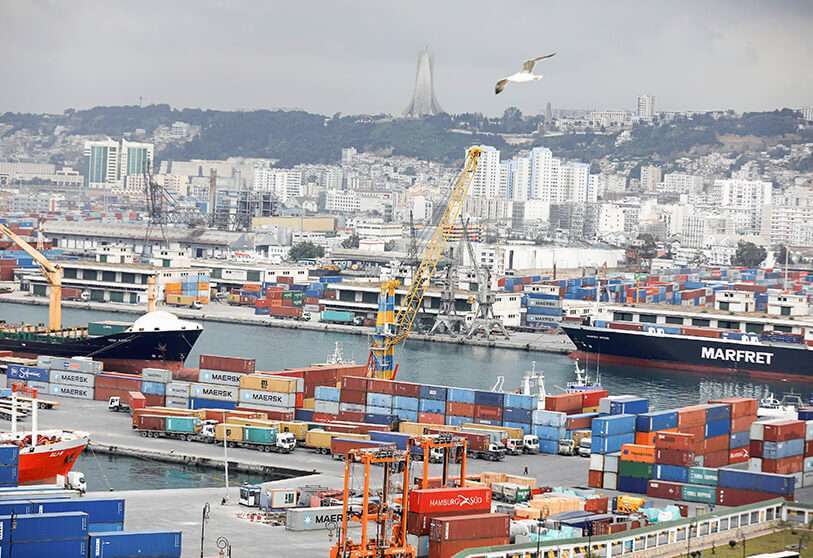
Independence outside the Maghreb was inconceivable, nor was a nation not integrated into the Maghreb. The Maghreb area, its constituent peoples and shared history made this unity indispensable for building a common future together. This pertinent and acute vision was present long before the emergence of globalisation, the great economic spaces, and borderless spaces that today make these unions indispensable for the benefit of international cooperation, giving rise to the birth of the World Trade Organisation in Marrakech in 1995, to which, paradoxically, Algeria, the central country of the Maghreb, has not yet managed to adhere.
The system installed in Algiers, by not conceiving Algeria's independence as a break with the colonial past in order to immediately build a united Maghreb, turned the Manifesto - after distorting its noble content - into a dead letter. It was only remembered every year in a folkloric way, solely for reasons of protocol and form. It was completely distanced from the essence of its content, even though it is of vital importance, being the road map for what was to be the configuration of Algeria as a nation within the framework of a United Maghreb. It was not just a question of achieving independence, but an independence that was inseparable from the framework of the greater Maghreb. Without it, there is no true independence.
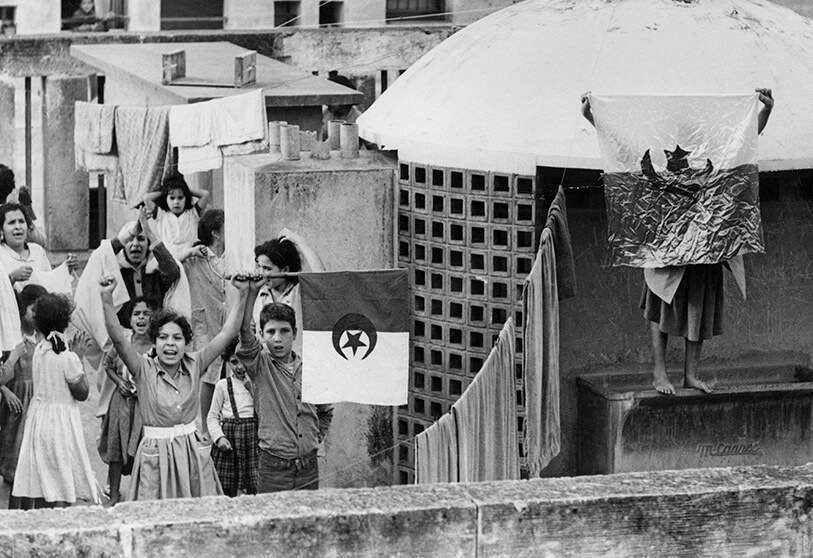
This is why the political-military system installed in Algiers is caught up in major contradictions and imprisoned by its own inconsistencies. On the one hand, it claims that Algeria is an ancestral nation. This means that its space and borders must conform to the space and borders that existed before colonisation. But on the other hand, it clings to the borders inherited from colonialism instead of repudiating them. The succession of territories inherited from colonialism is applicable to the nation that is born out of a sition, or in the case of 'terra nullius' that did not exist before its colonisation. These are entities that have only recently become a nation in the context of the succession of one state to another. Nations with a birth date starting from the moment of decolonisation.
It is understandable and legitimate that France should be asked to apologise for taking over and colonising Algerian lands, but it is incomprehensible not to thank it for the immense territories inherited illegitimately, and at the same time it is incomprehensible not to apologise to the countries to which these territories belonged by proceeding to a due return or alternative solution within a Greater Maghreb.
The other major contradiction concerns the presence of Turkish power in Algeria for three centuries. This presence, unlike the French, is not considered an occupation or colonial presence, in accordance with international Islamic law, which states that the land of Islam is the land of every Muslim. It is understandable, respectable, even acceptable to consider Turkey's presence in Algeria as neither colonialism nor occupation. But in view of this, the lack of coherence and the censurability of this principle respected by the Algerian military regime in its dealings with Morocco is completely incomprehensible when it considers the recovery of its Western Sahara as occupation and colonialism. Knowing that in this case, not only is the international Islamic law to which the military's Algeria clings applicable, but also, unlike Turkey, it is a Maghreb space, where the norms of international public law - that of territorial continuity and common culture - apply in its favour. Even the city of Marrakech, one of Morocco's important capitals, was founded by tribes from today's Sahara.
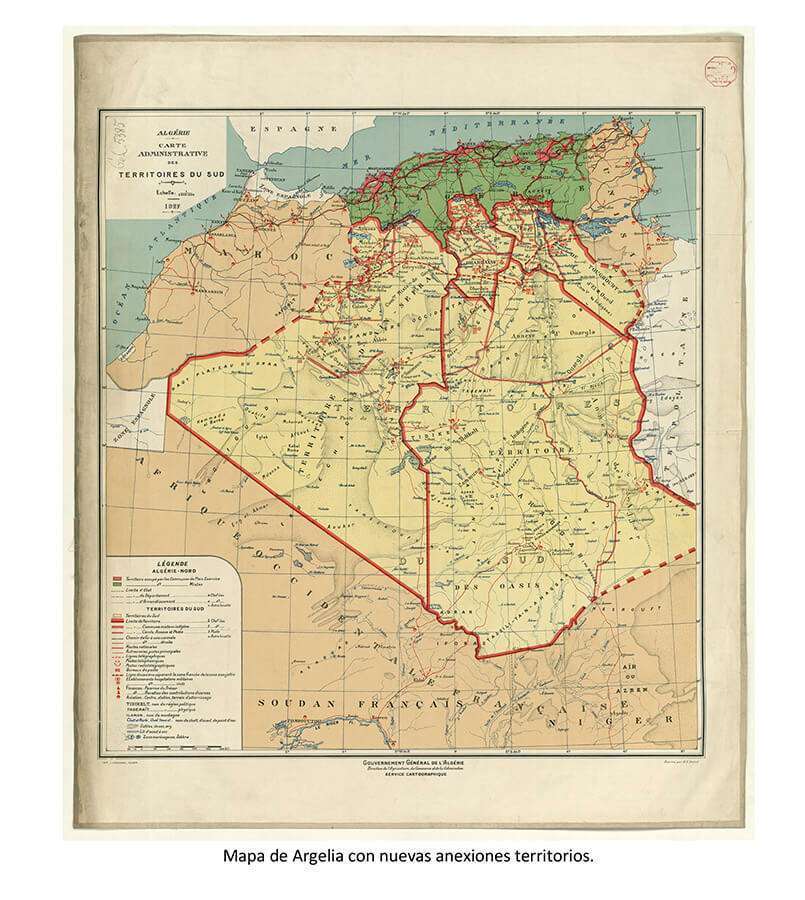
In short, in view of the above, it can be affirmed that Algeria is undoubtedly becoming a nation, but within the framework of the Maghreb, in accordance with its historical past and the aspiration expressed in the Manifesto of 1 November 1954.
Moreover, Emmanuel Macron is right in stating that in Algeria the "political-military system was built on this commemorative income". But it should also be noted that it is a military system that not only wrote its "history" to suit itself, but also uses a surprising double yardstick where contradictions and inconsistencies are palpable.
Being a military and police regime - with a president and a civilian government as a façade - its rationale is based on exercising the reason of force rather than the force of reason. As a result, dialogue is conspicuously absent at the national and Maghreb levels. This situation is aggravated by the advanced age of their real rulers who are not being renewed, some of whom are even octogenarians. This favours a high margin of error in decision-making, as decisions are the result of temperament and emotions rather than the use of reason and objectivity. This exposes the Algerian people to serious risks, as well as their immediate neighbours and international peace.
REFERENCES
(1) – España Invertebrada. Ortega y Gasset.
(2) – Droit international Public- Ch. Rousseau. Tome III pag330 y sig, y también Tratado de Internacional Público – L. Oppenheim. Tomo I- Vol.I Paz pag. 165 y sig.









